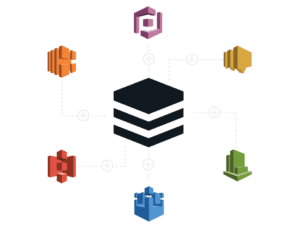Navigating the Road Ahead: Challenges and Opportunities for UK Manufacturers in 2024
The past few years have proven to be a major crucible for manufacturers worldwide, and the UK has not been exempt from these challenges. However, in the face of adversity, the manufacturing sector has displayed remarkable resilience.
As they look ahead to the upcoming year, recent PwC research shows that more than half of UK manufacturers are gearing up to introduce new products, with more than a quarter (27.3%) hoping to explore uncharted territory and expand into new markets.
However, the path forward is not without its challenges. Below are three ways I believe manufacturers can navigate the current, and future, landscape of international business to stay competitive and come out on top while staying focused on their most important asset, their customers.
Investing in Their Product Portfolio and Optimising Current Processes
The top growth initiative identified by UK manufacturers is the expansion of their product portfolios. According to PwC’s latest report, 52% of manufacturers see the most significant opportunity for them in 2024 lies in broadening their portfolio.
At the forefront of innovation and research and development (R&D), manufacturers serve as the propelling force, consistently pushing boundaries and transforming products, especially as they transition into a more digital and diversified economy. However, choosing the right product areas to invest in can be challenging. Some companies will prioritise what they think they should build next. Other companies will prioritise what their customers are asking for.
Firms that allocate resources to invest in collecting product and customer data through digital technologies are starting to reap the benefits and ROI of their product portfolio expansion. CRM software, for example, is helping companies choose which product investments to make.
By leveraging CRM data, manufacturers can easily identify which customer groups are the most valuable and strategic for them. Again, leveraging that CRM data, manufacturers then identify what products those different customer types are buying and even take it one step further by forecasting what new products they are most likely to buy. In all cases, CRM data is crucial to building a business case for new product investments and expansions.

By leveraging the insights gleaned from CRM software, manufacturers can confidently pursue opportunities that align with customer preferences and tailor their product development and marketing strategies to meet the evolving demands of their customer base effectively.
Tapping into New Markets
Manufacturers are reprioritising and setting their sights on expanding into new international markets, aiming to export their goods and services worldwide. According to the PwC report, 27% of companies recognise significant opportunities in exploring new international markets, and nearly a quarter (23%) see potential in exporting to new countries.
As manufacturers explore prospects in fresh markets, it becomes essential for them to actively adjust to the evolving landscape of UK trading rules and regulations post-Brexit. While the European Union remains a key consideration, it is no longer the exclusive focus, and a broader perspective on global trade factors is influencing decision-making.
Successfully navigating these changes requires proactive engagement and a deep understanding of the shifting dynamics in international trade. To thrive in these new markets, all manufacturers need to be nimble and adaptable, staying informed about evolving regulations and trade dynamics.

CRM data helps manufacturers understand current sales and market penetration in newly prioritised international expansion. With a solid understanding coming from that CRM data of what current customers look like and what they are buying, a manufacturer can build a business case for where to invest next, whether that be in the form of product portfolio expansion or international market expansion.
With CRM, companies are maximising their chances of success and positioning themselves for long-term growth and profitability in an increasingly globalised marketplace.
Being Early Adopters of Emerging Digital Technologies
Manufacturing enterprises are currently intensifying their investments in digital technologies, yielding numerous advantages such as heightened productivity, enhanced product quality, minimised waste, and more efficient labor utilisation.
Investments in emerging technologies must prove to be margin-enhancing for the business and fit for the future. Even with this in mind, 23% of manufacturing leaders see growth and cost-savings opportunities in Net Zero, digital tech, cloud, and Artificial Intelligence (AI).

As manufacturers look to the future, CRM, ERP, and Generative AI are emerging as the backbone technologies for modern enterprises. Businesses without a fit-for-purpose cloud and data strategy will be left behind, unable to grasp the benefits of new tech, such as Predictive and Generative AI, that depend on the cloud, as well as the insights that only emerge when CRM and ERP are connected under one platform. When you choose your CRM and ERP platforms of the future, you need to make sure they are heavily infused with AI insights and guidance and are designed to be easily integrated at the data and process levels.
To stay competitive, manufacturers need to apply creative AI-powered data analysis to predict growth opportunities based on merged ERP and CRM data. Ensuring your front and back offices are aligned and flawlessly working together is a solid way to eliminate some of the biggest headaches companies today have, such as a lack of transparency, up-to-date information and data, and operational bottlenecks.
Navigating the Future with Resilience and Innovation
As UK manufacturers navigate the road ahead in 2024, the path is illuminated by a mix of challenges and opportunities. The industry has showcased resilience in the face of adversity and demonstrated a commitment to innovation and sustainability. The positive strides, even in the midst of the past four years, are undeniable, but the sector must remain vigilant in addressing energy costs, labor challenges, and geopolitical uncertainties.
SugarCRM presents an ideal solution for UK manufacturers, aligning perfectly with both their product needs and cultural values. We understand that while your company’s main priority is growth, you still want an intimate CRM partner that is rooted in personalised, attentive service.
Here at Sugar, we want to be your partner, not just a vendor. With its user-friendly interface and customisable features, SugarCRM offers a platform that adapts to your company’s unique requirements, empowering you to manage customer relationships effectively while streamlining operations.
As we embark on this journey, it’s clear that the road ahead holds the potential for a manufacturing renaissance— a testament to the industry’s ability to thrive in the face of change. The road ahead demands strategic navigation, agility, and collaboration.
By choosing SugarCRM, your company gains not only a powerful CRM solution but also a partner committed to your success, fostering a relationship built on trust, understanding, and shared goals.



